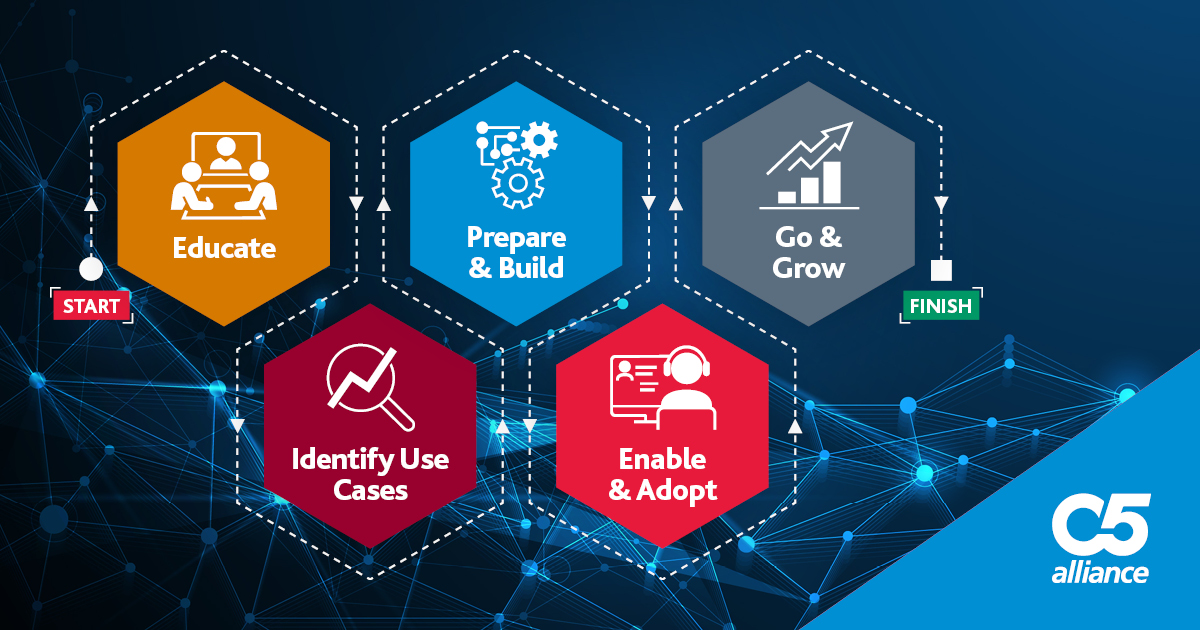AI for Trust and Corporate Service Providers

-
John Gamble
Director, Professional ServicesWhat trust and corporate service providers need to know about AI
There’s no doubt that artificial intelligence (AI) is revolutionising the trust and corporate service provider (TCSP) market, offering a number of benefits that have significant potential to enhance efficiency, accuracy and compliance.
As Jersey continues to place a considerable focus on the benefits of fintech across the financial services space, propelled by the ambitions of the Government of Jersey, Jersey Finance and Digital Jersey to position the jurisdiction as a leader in providing digital solutions to global clients, the question is really not should TCSPs be looking at implementing AI into their future strategies, but rather how. This is especially important when you consider that AI assistants and functionality is now being embedded within industry tooling (e.g. Microsoft Co-Pilot). Other vendors such as TrustQuay and LexisNexis are also following suit. If you use these tools and systems an AI option will be there soon.
The AI landscape is moving at pace, and firms need to be looking at AI as an integral part of their core proposition now, placing an emphasis on where they are on the AI adoption and maturity curve.
Benefits
Improved efficiency is critical.
AI systems can automate repetitive tasks, such as data entry and document management, allowing TCSPs to streamline their operations and reduce operational costs. That’s crucial in a jurisdiction where input costs can be high, according to the Government of Jersey’s quarterly Business Tendency Survey figures.
Enhanced accuracy is also a major benefit.
AI algorithms are able to analyse vast amounts of often complex data with greater accuracy than people can. This can help minimise errors when it comes to tasks like risk assessment and regulatory compliance, a major benefit when operating in a fast-paced, highly data-driven environment.
Risk Mitigation
Moreover, through predictive analytics and monitoring of market trends, regulatory changes and client behaviours, AI also has the capacity to mitigate risk, enabling providers to take proactive measures to safeguard client interests.
Due Diligence
In addition, more and more AI solutions are coming to market that have the ability to address KYC and due diligence tasks, such as scanning documents and contracts for compliance and legal requirements. In the sort of highly regulated and complex cross-border landscape Jersey TCSPs operate in, that sort of assistance is invaluable.
Looking to the future, the direction of travel is clearly towards service personalisation, and AI has a key role to play here – whether, it’s addressing the concerns of a fund manager raising capital in a niche asset class; a family office needing insights into a philanthropic endeavour; or the next gen beneficiary of a trust wanting to explore specific investment opportunities.
Challenges
Against this backdrop, it’s easy to see why the appetite and ambition amongst TCSPs in Jersey to adopt AI is so strong – and as competition intensifies and regulatory requirements become more stringent, these benefits will only become more important.
Indeed, in a survey undertaken by UK Finance last year, 90% of finance firms interviewed said they were already leveraging predictive AI in back-office functions, whilst more than 60% believed it has the potential to deliver significant cost savings and improvements to operational effectiveness (UK Finance, 2023).
Despite the clear opportunity to stay ahead of the curve, some TCSPs are still moving slowly.
Perhaps the biggest pushback is when it comes to people themselves, with firms being wary of a perceived lack of skills or showing an organisational culture that is resistant to change.
That’s understandable – AI can be complex involving technical and complicated language. For most people working in the trust, fund and corporate administration sector, AI is a relatively new concept and work will be needed to close the skills gap – but addressing skills needs is not insurmountable.
Governance and ethics are also big challenges. The power of AI can have justifiable cause for concern amongst compliance professionals and there are fundamental questions for organisations when it comes to implementing AI into its frameworks. How will it impact client and employee data? How can security be guaranteed? How can AI be adopted across multiple locations?
It’s telling, for instance, that more than 65% of finance firms consider conflicting rules around AI between different jurisdictions to be a top three concern (UK Finance, 2023). In the cross-border environment Jersey TCSPs operate in, that’s a real challenge.
A final issue is that of Data Quality. AI tooling has the ability to summarise, interact with and query unstructured data (e.g. documents containing policies, procedures and training manuals. Ensuring the documentation is correct before supplying it to an AI-based assistant is critical to getting consistent and accurate answers to queries.
Overall, a common issue for TCSPs is the lack of a clear strategy and how to connect their business to AI solutions that can grow their business. Without a well-defined strategy, it is difficult for companies to know where to start, identify goals, and allocate resources effectively.
Progress
There are steps TCSPs can take, however, to address these challenges – and it starts with being open to having conversations around the appropriate way forward. In our own experience, our specialist AI team advocates a five-step approach to help firms make progress

- Educate: having conversations at all levels of a business to better understand what AI is and how it can help the business and end clients.
- Identify use cases: embark on an AI journey by identifying organisation-specific AI use cases – a lot of AI applications in the TCSP space are currently in a ‘proof of concept’ phase.
- Prepare and build: entering the AI realm requires a strong foundation, focusing on data quality and diversity, security and governance.
- Enable and adopt: success depends on team acceptance. Key principles include a thorough training program, fostering a change-receptive culture and transparent communication.
- Go and grow: take the leap and embrace challenges as opportunities to learn.
Of course, AI for Trust and Corporate Service Providers can be a daunting prospect, and calling on the expertise, experience and technical know-how of outsourced professionals can be useful. C5 is unique in its focus on being able to support TCSPs in Jersey by articulating and bringing to life their AI aspirations – from understanding the opportunities, appreciating the challenges and building a business case, through to delivering technical solutions.
Opening the door to a conversation about AI could be the start of a highly productive process and the team at C5 is keen to be there to support the sector through its exciting end-to-end AI journey.
If you would like a discussion to understand how your business can get started with AI please contact John Gamble, Head of our Data and AI Practice for a chat
